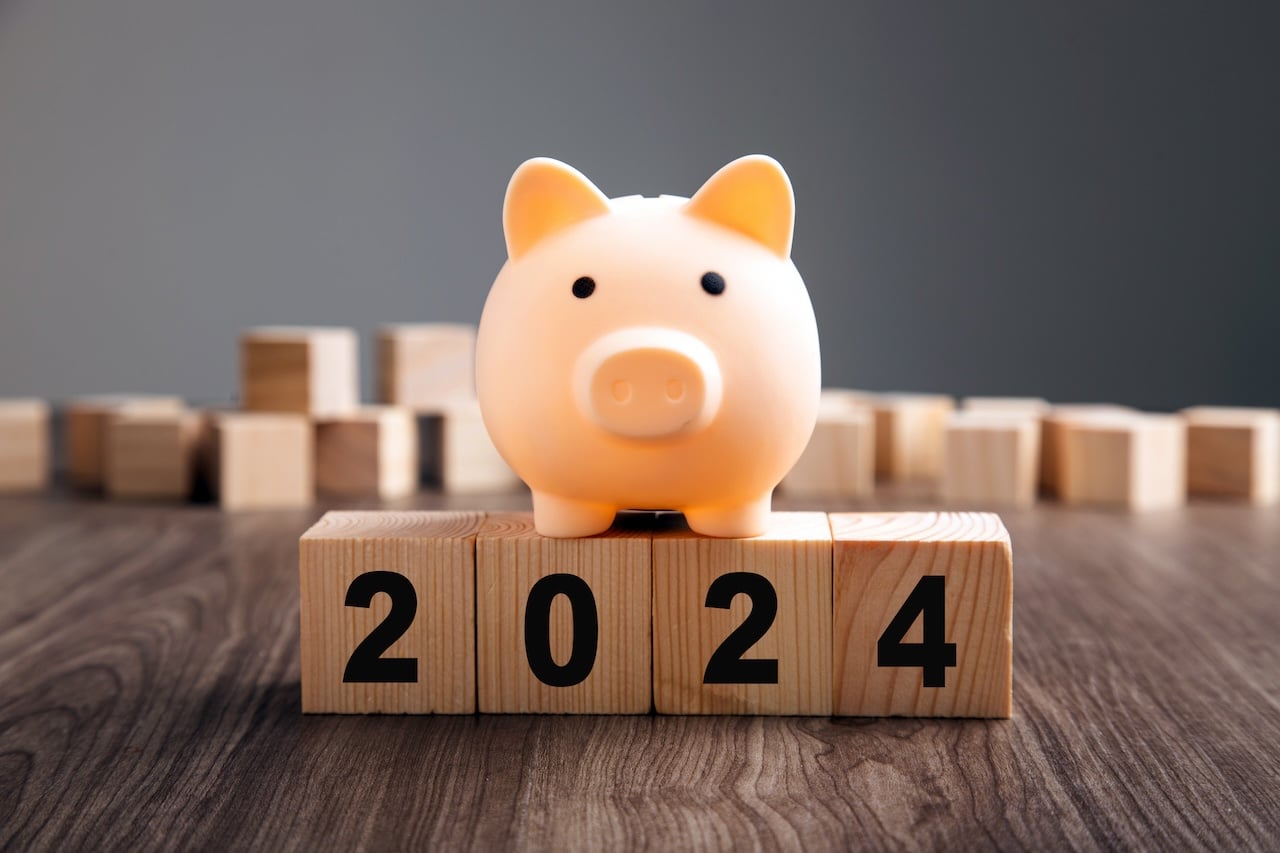Credit Sesame with nine ways to prepare your personal finances for 2024.
There may not be much you personally can do about the economy, but you can be ready to adjust your personal finances to changing events. Here are nine things to prepare for in 2024:
1. Interest rates disappoint
The stock market staged a powerful rally following the last Federal Reserve meeting of 2023. Between skipping one last interest rate hike for 2023 and releasing projections showing rates declining in 2024, the Fed signaled a policy shift toward lower rates. However, investors and commentators seemed quick to over-hype the possibilities. For one thing, the impact of any rate cuts won’t be felt much till later in the year. It may be months before the Fed starts cutting rates and months more before new, lower-rate debt outweighs the debt consumers have taken on over the past couple of years. Also, while some are already predicting the Fed will cut rates more aggressively than currently projected, this ignores how cautious the Fed has been about inflation. There seems to be at least an equal chance that the Fed will be less aggressive than their current projections.
2. Inflation doesn’t go quietly
One thing that could slow the Fed’s plans to lower the rate is if inflation shows signs of flaring up again. Given the history of inflation, that seems likely to happen at least temporarily. Multiple inflationary forces are still lurking. Labor remains tight, both domestically and globally. An election year is likely to bring out the worst instincts of both parties for overspending and costly protectionism. Conflict in the Middle East is already interfering with shipping in the Red Sea. If continued, this could bring back some of the supply chain nightmares that contributed to inflation a few years ago.
3. The US economy loses momentum
2023 was an unexpectedly good year, but economic growth was partly sustained by consumers spending down pandemic savings and accumulating a record amount of debt. That isn’t sustainable, with savings largely depleted and debt payment delinquencies rising. A slowdown in GDP growth seems inevitable, and the resumption of student loan payments may be the coup de grace that tips the economy into recession.
4. Credit scores decline
During the pandemic, credit scores benefited from various income assistance and loan forbearance programs. Now that those have ended, reality is setting in. It seems only a matter of time before rising balances and late payments translate to falling credit scores for many Americans – enough to drag down the overall average. Some politicians and regulators are making moves to artificially boost scores by excluding certain types of debt, but that’s unlikely to fool lenders.
5. Lending standards tighten
As consumer creditworthiness weakens, lenders raise the requirements for approving credit cards and loans. The latest Fed survey of senior loan officers shows this has already begun. It’s likely to continue as long as payment delinquency rates keep rising. In particular, expect credit cards for poor credit customers to become more challenging to get and carry lower credit limits.
6. Credit spreads widen
This could work against any trend towards lower interest rates in 2024, especially for customers with lower credit scores. Credit spreads refer to the difference between interest rates charged to borrowers with low credit scores and those charged to customers with excellent credit. When payment delinquency rates rise, as they have been lately, people with weak credit tend to fall behind the most. To compensate for this, credit card companies may raise interest rates on credit cards for poor credit scores. Rates on credit cards for people with good credit tend to be less affected, so the spread between those interest rates widens. Bottom line: you may pay more for having bad credit next year.
7. Home buyers can’t get a break
Over the past couple of years, high mortgage rates have frozen a lot of would-be home buyers out of the market. As 2023 closed, mortgage rates were on an extended downward slide. Expect more of this trend in 2024 if inflation continues to ease. However, before would-be home buyers celebrate, remember that many other potential buyers have been waiting for mortgage rates to fall. Lower rates could bring a flood of buyers into the market, boosting housing prices as rates fall. Those who react quickly when rates fall might find the sweet spot before prices rise.
8. Personal savings rates remain minimal
Over the past 50 years, the personal savings rate of Americans has averaged 7.6%. As of November, it was down to just 4.1%. With record consumer debt and elevated interest rates eating into budgets and student loan payments adding to the strain, don’t expect this to improve in 2024.
9. Public companies scramble to claim an AI connection
Over the past year, excitement over the potential of artificial intelligence (AI) has swept the stock market. It has helped boost the stock prices of prominent tech firms that are leaders in the field. Expect more companies to try to catch the wave in 2024 by touting their AI capabilities, however tenuous. This could lead to a blizzard of hype, which hasn’t been seen since the dot-com boom at the end of the 1990s. Remember, that led to a market collapse that separated a few long-term winners from hundreds of failed pretenders.
As always, some developments in 2024 will be completely unexpected. The best way to handle that is to stay informed and adjust to events as they unfold. Credit Sesame will help you keep on top of events that affect your finances and explain what you can do to respond.
If you enjoyed Are your personal finances ready for 2024? 9 ways to prepare you may like,
Disclaimer: The article and information provided here is for informational purposes only and is not intended as a substitute for professional advice.




















